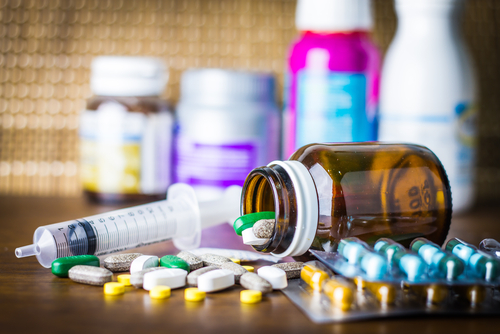A new report warns that drug shortages are increasing and pose a threat to national security

A report by Democrats on the Senate Homeland Security Committee has found that new drug shortages increased by nearly 30 percent between 2021 and 2022.
WASHINGTON — Children’s medication, antibiotics and treatment for ADHD are among a number of drugs that have been in short supply in recent months — and these shortages of critical medications are only rising, according to a new report set to be released on Wednesday.
From 2021 to 2022, new drug shortages increased by nearly 30%, according to the report prepared by Democrats on the Senate Homeland Security and Governmental Affairs Committee.
“These shortages, which reached a peak of 295 individual drugs in shortage at the end of 2022, have left health care professionals grappling with limited resources to treat patients in need,” committee Chairman Gary Peters, D-Mich., is expected to say in his opening remarks at a hearing highlighting the report’s findings on Wednesday.
Shortages have been caused by economic drivers, reliance on foreign sources and poor visibility of the pharmaceutical supply chain, the report said.
“Taken together, these underlying causes not only present serious concerns about providing adequate care to patients, they also represent serious national security risks,” Peters will say, according to this prepared remarks. Wednesday’s hearing is scheduled for 10:30 a.m. ET.
The committee report highlights that neither the federal government nor the pharmaceutical industry has the capability to assess the full supply chain, from the starting materials, to the finished dosage and to purchasers and providers. Many drug manufacturers have moved overseas over the last several decades because foreign governments have offered tax and logistical incentives as well as fewer regulations, the report said.
More than 15 basic critical care drugs have remained in shortage for more than a decade, according to the report, with most being injectable medications, which are more than twice as likely to experience shortages compared to other drugs that are taken orally or are topical. Nearly one-third of these critical drugs in short supply are antibiotics, used to prevent and treat bacterial infections.
Propofol, a sterile injectable sedative that anesthesiologists often give to patients before surgery, is currently in shortage and “has gone in and out of shortage” over the last 15 years, the report said. This was a result of manufacturing delays, companies leaving the market and unprecedented demand during the Covid-19 pandemic.
Part of the problem is that 90% to 95% of generic sterile injectable drugs depend on starting materials from China and India, the report said, citing the Administration for Strategic Preparedness and Response, a federal agency.
In his opening remarks, Peters is expected to say that the U.S.’s overreliance on foreign suppliers, especially those in China, “remains an unacceptable national security risk.”
These drug shortages have led to delays in treatment for patients, providers resorting to substitute sometimes less effective treatments, and medication errors. Some patients, including those with cancer, have faced a lack of alternative drugs.
Peters warns that because of the federal government’s lack of oversight of the supply chain and limited data sharing between the government and the drug industry, agencies like the Food and Drug Administration can’t properly predict drug shortages.
The committee recommends that Congress require the departments of Defense, Homeland Security and Health and Human Services to conduct supply chain risk assessments for drug shortages and identify potential national security concerns.
Peters is working on legislation to make other recommendations in the report a reality. Those include investing in domestic manufacturing, requiring manufacturers to report an increase in demand or export restrictions, and encouraging the FDA to develop a database that would make it easier for the agency to track materials used in the supply chain process
Source: nbcnews.com










